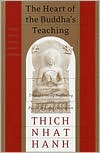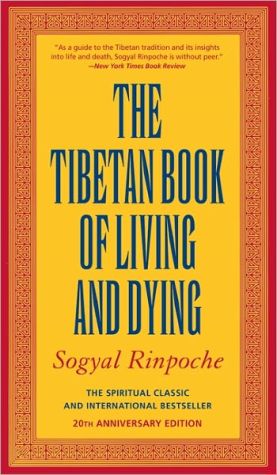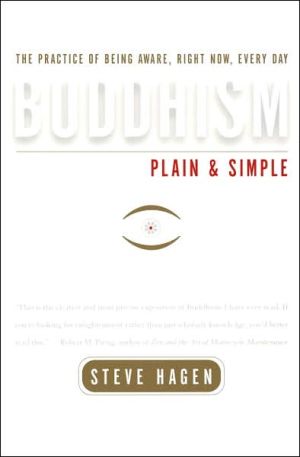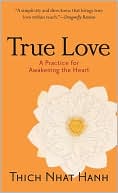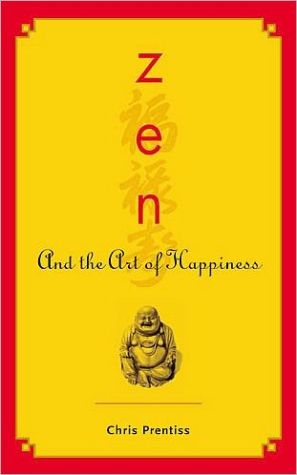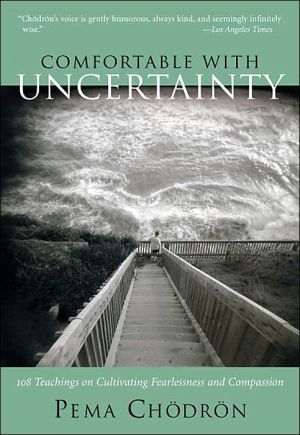No Time to Lose: A Timely Guide to the Way of the Bodhisattva
Over the years, Pema Chödrön's books have offered readers an exciting new way of living: developing fearlessness, generosity, and compassion in all aspects of their lives. In No Time to Lose Pema invites readers to venture further along the path of the "bodhisattva warrior," explaining in depth how we can awaken the softness of our hearts and develop true confidence amid the challenges of daily living.\ Pema reveals the traditional Buddhist teachings that guide her own life: those of The Way...
Search in google:
Over the years, Pema Chödrön's books have offered readers an exciting new way of living: developing fearlessness, generosity, and compassion in all aspects of their lives. In No Time to Lose Pema invites readers to venture further along the path of the "bodhisattva warrior," explaining in depth how we can awaken the softness of our hearts and develop true confidence amid the challenges of daily living. Pema reveals the traditional Buddhist teachings that guide her own life: those of The Way of the Bodhisattva (Bodhicharyavatara), a text written by the eighth-century sage Shantideva. This treasured Buddhist work is remarkably relevant for our times, describing the steps we can take to cultivate courage, caring, and joy—the keys to healing ourselves and our troubled world. Pema offers us a highly practical and engaging commentary on this essential text, explaining how its profound teachings can be applied to our daily lives. Publishers Weekly Popular Buddhist teacher Chodron has a surprise for her many readers and students: textual commentary. Her newest book comments at length on an eighth-century text by the Indian Buddhist sage Shantideva. It's a guidebook for developing bodhichitta, an awakened mind that expresses itself in compassionate action to alleviate suffering. The lengthy text will certainly be unfamiliar to beginners, but Chodron is a wise choice for an escort. She is a clear teacher, explaining key terms (the Sanskrit term klesha, for example, may be translated as neurosis or affliction) and making things simple and characteristically plainspoken ("When we are distracted, we can't remember anything we've studied or read"). She is also the right kind of motivator, telling readers immediately what's in it for them: this book can inspire those who want to make the world a better place. Readers will need a helpful teacher and patience to take up the challenge offered by the long Buddhist text, which has been important in Chodron's own study. It's not a book for beginners or a good introduction to Chodron's own body of accessible work. But for those wanting depth and greater awareness of the Buddhist canon, this book opens a door. (Nov. 8) Copyright 2005 Reed Business Information.
Rejoicing\ Let's say you're out walking and you notice the beauty of the sky. Right on the spot you could rejoice in that very thing. You could rejoice in your good fortune to be in such a beautiful place. Or you might notice, "Well, what do you know? I just did something kind." And you rejoice in that. Maybe you spontaneously said something encouraging, or helped someone with their heavy bags. That instinct to reach out was right there within you. Whatever form it takes, you can rejoice in that virtue, in that tenderness within you.\ When others are happy and doing well you can rejoice in their good fortune as well. There are continual opportunities to rejoice in your own good fortune and the good fortune of others. Someone may simply get a letter or a compliment that makes them happy. Or, a person who's been very depressed may have some personal insight that lifts their spirits. Right on the spot we can rejoice in their good fortune.\ Generally this is not so easy to do. It's not the natural inclination or habit of mind. Instead, what we notice is our feeling of not-so-glad-about-our-good-fortune—or anyone else's. When you're having a really bad day, seeing someone else having a good day usually does not give you joy. Very likely you thoroughly resent it. Or when someone else gets the job promotion you wanted, your first instinct may not be to rejoice in their good fortune.\ If you make it your practice to rejoice for even one week, it will probably show you some envy and resentment you didn't even know you had. Who would have thought that the practice of rejoicing would be a setup for seeing our neurosis? The usual response to this is to feel we've blown it. For the aspiring bodhisattva, this is not the case. When your intention is to wake up so that you can help others to do the same, then you can rejoice in your capacity to see where you're stuck as much as you rejoice in your capacity for loving kindness.\ There is no other way for true compassion to emerge. No other way to water the seed of bodhichitta. This is how you know what other people are up against. Just like you, they aspire to open, only to see themselves close. Just like you, they have the capacity to feel joy and, out of ignorance, they block that joy. The difference is that we can get smart and begin to see when we get hooked and do something different. Instead of going on automatic pilot, and following the same old momentum, we could let the storyline go and stay present with an open heart. And we could rejoice that we are even slightly interested in choosing such a fresh alternative.
People Like Us Can Make a Difference ixDeveloping a Clear Intention 1Preparing the Ground 25Transcending Hesitation 53Using Our Intelligence 75Taming the Mind 103The Three Disciplines 129Working with Anger 159Specific Situations for Practicing Patience 189Enthusiasm 225Heartbreak with Samsara 269Dissolving the Barriers 303Dedication 341Acknowledgments 363Study Guidelines 365Glossary 367Bibliography 371Index 375
\ From Barnes & NobleIn books such as When Things Fall Apart and Getting Unstuck, popular spiritual teacher Perna Chödrön draws on traditional Tibetan Buddhist teachings to help readers approach situations in their lives. In No Time to Lose, she presents an annotated version of a revered 8th-century text by the Indian Buddhist sage Shantideva. This lengthy text and commentary serves as a guidebook for developed bodhichitta, an awakened mind that expresses itself in compassionate action. Though not as accessible as Chödrön's introductory works, this book will be welcomed by serious students of Buddhism.\ \ \ \ \ Publishers WeeklyPopular Buddhist teacher Chodron has a surprise for her many readers and students: textual commentary. Her newest book comments at length on an eighth-century text by the Indian Buddhist sage Shantideva. It's a guidebook for developing bodhichitta, an awakened mind that expresses itself in compassionate action to alleviate suffering. The lengthy text will certainly be unfamiliar to beginners, but Chodron is a wise choice for an escort. She is a clear teacher, explaining key terms (the Sanskrit term klesha, for example, may be translated as neurosis or affliction) and making things simple and characteristically plainspoken ("When we are distracted, we can't remember anything we've studied or read"). She is also the right kind of motivator, telling readers immediately what's in it for them: this book can inspire those who want to make the world a better place. Readers will need a helpful teacher and patience to take up the challenge offered by the long Buddhist text, which has been important in Chodron's own study. It's not a book for beginners or a good introduction to Chodron's own body of accessible work. But for those wanting depth and greater awareness of the Buddhist canon, this book opens a door. (Nov. 8) Copyright 2005 Reed Business Information.\ \ \ Library JournalIn Mahayana Buddhism, Bodhisattvas are those who vow to achieve personal enlightenment solely for the purpose of eliminating the suffering of all sentient beings before they themselves abandon the painful cycle of death and rebirth. To help guide these seekers on their spiritual paths, the eighth-century Indian sage Shantideva composed the Buddhist text Bodhicaryavatara, or The Way of the Bodhisattva, today considered one of the classics of all religious literature. Ch dr n (The Places That Scare You), an American Buddhist teacher in the lineage of Chogyam Trungpa, gives general readers as well as serious students an easily understood explication of The Way, quatrain by quatrain. Her warm and elegant instruction omits only Chapter 9 of The Way, as she feels it would require a book of its own (the Dalai Lama has treated this chapter in his Transcendent Wisdom). Highly recommended for public and academic libraries.-James R. Kuhlman, Univ. of North Carolina at Asheville Lib. Copyright 2005 Reed Business Information.\ \ \ \ \ From the Publisher“No Time to Lose represents the fruition of Chödrön’s years of practice and study: a traditional commentary in which passages from The Way of the Bodhisattva are interspersed with her ever-approachable and pithy instructions for daily life.”—Parabola \ “In this ambitious and profound work, Chödrön hits high stride, creating a wide-ranging, accessible, and soul-stirring commentary on the classic Buddhist text The Way of the Bodhisattva.”—Spirituality & Health\ \ \


